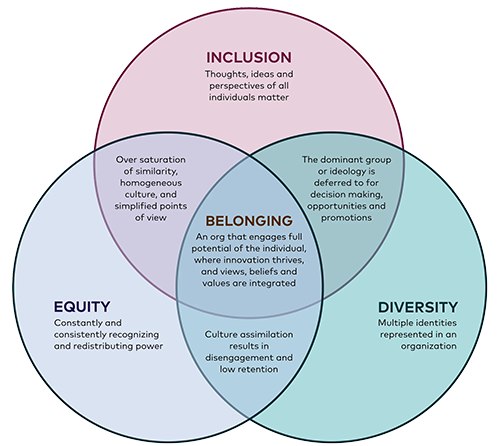In partnership with Georgetown University Medical Center, the MedStar Health Academic Affairs Working Group for Racial Justice was created to address the negative impact of systemic racism in our MedStar Health academic community. The focus audience of this working group is MedStar Health residents, fellows, and teaching faculty. This effort consists of a Steering Committee and six Subcommittees, or working groups, focused on the development and implementation of sustainable positive change in our clinical learning environments.
Leadership Team

Dean Jamie Padmore
WGRJ Executive Sponsor
About Jamie Padmore
Jamie S. Padmore is vice president of Academic Affairs at MedStar Health. In this role, she has strategic and operational oversight for Graduate Medical Education (GME), continuing medical education, faculty development, medical staff credentialing and physician well-being at MedStar Health. She serves as the Designated Institutional Official (DIO) for the MedStar Health GME Consortium, which includes more than 1,100 residents and fellows enrolled in more than 90 clinical training programs.
In addition, Padmore is the senior associate dean for medical education at Georgetown University Medical Center (GUMC) and principal liaison for medical student clinical education at MedStar Health’s clinical sites. She is the founder and co-director of the MedStar Health Teaching Scholars Program, and established Georgetown’s Office of Educational Scholarship. She holds the rank of professor in the GUMC Department of Surgery.
Nationally recognized for her published research on academic remediation and due process, clinical competence assessment and the clinical learning environment, Padmore is often sought after as a consultant in medical education. She was honored as the inaugural recipient of Georgetown University’s designation of Distinguished Educator.
Padmore received her Bachelor of Science from the Ohio State University College of Medicine, and her Master of Science and Doctor of Management from the University of Maryland. She is a 2007 Harvard-Macy Scholar, and also holds a certificate in leadership from Georgetown University and a certificate in medical education research from the Association of American Medical Colleges.
Padmore has held leadership roles on several national organizations, including the Association of American Medical Colleges (AAMC) Group on Educational Advancement, Group on Resident Affairs, and served three elected terms as AAMC’s national section chair for Graduate Medical Education. She also has served as an officer and board member for the Alliance of Independent Academic Medical Centers. She is an active member of the Association of Medical Educators in Europe. Locally, Padmore serves as faculty with the Uniformed Services University of the Health Sciences Program Director Training Course, the Veterans Affairs Medical Center Deans’ Committee and Maryland Health Services Cost Review Commission.

Megha Shah Fitzpatrick, MD, FAAP
About Dr. Fitzpatrick
Dr. Fitzpatrick currently serves as Vice Chair for Education in the department of Pediatrics and an Associate Professor of Pediatrics. She also serves as the director of Pediatric Medical Education at the Georgetown University School of Medicine. She graduated from the Drexel University College of Medicine in 2003 and went on to complete her Pediatric Residency and Internship at the Children’s National Medical Center from 2003-2006 and her Pediatric Critical Care Fellowship at Children’s National Medical Center from 2006-2009. She is board certified in Pediatrics and Pediatric Critical Care by the American Board of Pediatrics.
As a clinician educator and mother, racial justice and health equity are incredibly important to Dr. Fitzpatrick as she looks towards the next generation of physicians and her children’s generation of Americans. As a woman of color and an ally to our Black faculty, residents and students, Dr. Fitzpatrick has heard from them and witnessed first-hand the barriers they have faced at every step of the way because of the racism within society and within academic medicine. She strongly believes that diversity, equity, and inclusion lead to excellence. Dr. Fitzpatrick is passionate about ensuring that MedStar Health, as an academic health system, creates and sustains a clinical learning environment that is diverse, inclusive and equitable. An environment that supports and helps all faculty, students and trainees thrive and excel; especially those in groups that are traditionally under-represented in medicine. Furthermore, creating and sustaining a diverse and inclusive clinical learning environment will help MedStar Health become an academic medical system that continues to promote health equity for all of the patients and communities we serve. Dr. Fitzpatrick is looking forward to collaborating and innovating with leaders, faculty, and trainees across our health system to promote and sustain diversity, equity, inclusion, and anti-racism in our clinical learning and practice environment. She is humbled and honored to be a part of this important work as we strive to make change for a better future of academic medicine and a better future for her children’s generation of Americans.

Yewande Rukayat Alimi, MD
About Dr. Alimi
Yewande Alimi, MD, is a general surgeon at MedStar Georgetown University Hospital and MedStar Washington Hospital Center. Dr. Alimi received her medical degree from the Emory University School of Medicine. She completed her residency at MedStar Georgetown/MedStar Washington and her fellowship at Stanford University School of Medicine. Dr. Alimi is board certified in surgery.

Iman Mohammed, PMP, SPHR
About Iman Mohammed
Iman Mohammed, PMP, SPHR is the Director of Project & Program Management, HR Operations. Prior to her current position, she has held various roles in Human Resources at MedStar Georgetown University Hospital. Mohammed received her Bachelors of Arts and Master of Healthcare Administration from the University of Maryland.
Executive Committee
Entity Council Sub-Committees
- Awareness and Communication, Dr. Megha Shah Fitzpatrick (Chair)
- Education and Development, Dr. Keisha Bell (Chair)
- Community Involvement, Dr. Yewande Alimi (Chair)
- Health Equity (Research and Education), Dr. Philippa Soskin (Chair) and Karey Sutton (Co-Chair)
Legacy Sub-Committees
- Wellbeing, Dr. Selena Briggs (Chair) and Dr. Heather Hartman-Hall (Co-Chair)
- Recruitment and Retention of Black/URIM Trainees and Faculty, Dr. Jamie Hill-Daniel (Chair) and Dr. Colin Stewart (Co-Chair)
Our Partners
As partner organizations, Equity, Inclusion, and Diversity is a top priority for both MedStar Health and Georgetown University across our academic health system.
House Staff Diversity Council
The House Staff Diversity Council is a self-governing and representative body within academic affairs of Medstar Health. The purpose of the committee is to promote diversity and inclusion within Medstar Health by championing and supporting initiatives that foster community engagement, mentorship and sponsorship, and scholastic achievements. The council is in its inaugural year and will have events and initiatives that are forthcoming. If you are interested in getting involved, please reach out to Yewande Alimi.
Resources
Residency Recruitment
![]()
- AAMC Interviews in GME Guidance
- AAMC Holistic Review
- Addressing Implicit Bias in the Surgical Residency Application and Interview Process for Underrepresented Minorities
- Best Practices for Reducing Bias in the Interview Process
- Diversifying the Physician Workforce — From Rhetoric to Positive Action
- Holistic GME Recruitment Cycle + Enrollment Management
- Improving Diversity in Pediatric Residency Selection: Using an Equity Framework to Implement Holistic Review
- Incorporating Holistic Review in Recruitment in a Physical Medicine and Rehabilitation Residency Program
- Navigating Bias on Interview Day: Strategies for Charting an Inclusive and Equitable Course
- Reimagining Merit and Representation: Promoting Equity and Reducing Bias in GME Through Holistic Review
Grading Equity
- Core Clerkship Grading Recommendations (WGRJ)
- Core Clerkship Grading: The Illusion of Objectivity
- The Current Status of Medical School Clerkship Grades in Residency Applicants
- Differences in Narrative Language in Evaluations of Medical Students by Gender and Under-represented Minority Status
- Evaluation of Predictors for Successful Residency Match in General Surgery
- How Small Differences in Assessed Clinical Performance Amplify to Large Differences in Grades and Awards: A Cascade With Serious Consequences for Students Underrepresented in Medicine
- In Pursuit of Honors: A Multi-Institutional Study of Students’ Perceptions of Clerkship Evaluation and Grading
- Medical Education’s Wicked Problem: Achieving Equity in Assessment for Medical Learners
- Racial/Ethnic Disparities in Clinical Grading in Medical School
- Step 1 is Pass/Fail, Now What? Can Clinical Clerkship Grades be Used as a Reliable Metric to Screen General Surgery Residency Applicants?
Diversity, Equity, and Inclusion

Click to enlarge; Source: www.medium.com
- AAMC Equity, Diversity & Inclusion
- AAMC Achieving Excellence through Equity, Diversity, and Inclusion
- ACGME Diversity, Equity, and Inclusion
- ACGME Equity MattersTM
- UCSF Equity in Assessment Guidelines and Checklist
- Beyond a Moment — Reckoning with Our History and Embracing Antiracism in Medicine
- Building Diversity in a Complex Academic Health Center
- Building Institutional Capacity for Diversity and Inclusion in Academic Medicine
- Creating Real Change at Academic Medical Centers — How Social Movements Can Be Timely Catalysts
- A Decade of Studying Implicit Racial/Ethnic Bias in Healthcare Providers using the Implicit Association Test
- Implicit Bias in Pediatric Academic Medicine
- The Life of a Black Medical Trainee in the United States: Past, Present, Future
- Stolen Breaths
- They Don’t See a Lot of People My Color: A Mixed Methods Study of Racial/Ethnic
- Toward the Science and Practice of Anti-Racism: Launching a National Campaign Against Racism





